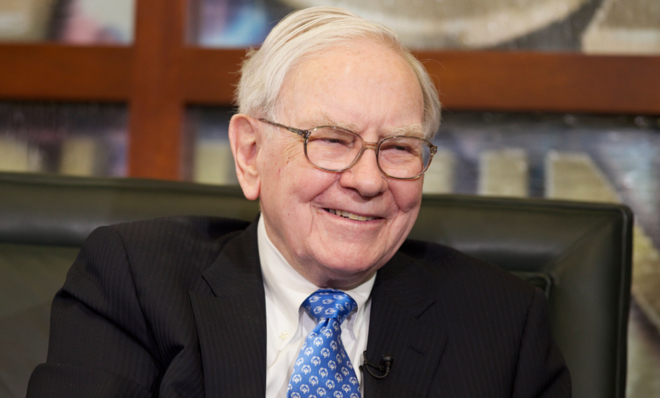How Warren Buffett made $10 billion during the financial crisis
In 2008, the Oracle from Ohama followed his own advice

A free daily email with the biggest news stories of the day – and the best features from TheWeek.com
You are now subscribed
Your newsletter sign-up was successful
Back in 2008, when investors were racing for the exits amidst a global economic meltdown, Warren Buffet coolly threw a lifeline to a few companies even though their stock prices were dwindling.
Now that the economy is on the road to recovery, Buffett's returns are coming in. And surprise, surprise — the deals paid off.
The profits from the Oracle of Omaha's crisis-era deals have raked in "$10 billion and counting," says The Wall Street Journal.
The Week
Escape your echo chamber. Get the facts behind the news, plus analysis from multiple perspectives.

Sign up for The Week's Free Newsletters
From our morning news briefing to a weekly Good News Newsletter, get the best of The Week delivered directly to your inbox.
From our morning news briefing to a weekly Good News Newsletter, get the best of The Week delivered directly to your inbox.
The deals Buffett's Berkshire Hathaway made from 2008 to 2011 involved giant, blue-chip companies like Mars, Goldman Sachs, Bank of America, and Dow Chemical. Taking advantage of the general atmosphere of panic, Berkshire Hathaway was able to use its "gigantic cash hoard to move swiftly and exact lucrative terms that created a stream of payments from the borrowers," says the Journal.
For example, Buffett pumped $5 billion into Goldman Sachs shortly after Lehman Brothers collapsed, a massive boost of confidence in Goldman that shored up its stock price. Buffett bought $5 billion in preferred shares, and as part of the deal won warrants for an additional $5 billion worth of common shares.
In 2011, Goldman bought back the preferred stock for $5.64 billion, and handed Buffett a $500 million bonus. Then last week, Buffett exercised the option on 13.1 million common shares for a value of about $2.07 billion.
Another example: Buffett helped finance Mars' $23 billion purchase of Wrigley back in the spring of 2008, at a time when big-time acquisitions were quickly falling out of fashion. Mars recently bought back $4.4 billion in bonds from Berkshire Hathaway, resulting in about $680 million in profits for Berkshire, says the Journal.
A free daily email with the biggest news stories of the day – and the best features from TheWeek.com
So is there anything the average investor can learn from the Oracle? For one, Buffett didn't allow himself to be rattled by chaos that had engulfed the markets, instead turning an analytical eye on Goldman's business and correctly concluding that the investment bank would be spared the kinds of losses that wracked its competitors.
The Mars-Wrigley deal also saw Buffett ignore the background noise, putting a lot of money down on a deal so fundamentally solid that it would be boring without Buffett's participation.
Which brings us to the real key to Buffett's success: Being Warren Buffett. When you've got the Midas touch, nearly every deal you make boosts investor confidence in the company in question, turning its success into a self-fulfilling prophecy. And that's something no one can learn, no matter how many "Woodstocks for Capitalists" they attend.
Carmel Lobello is the business editor at TheWeek.com. Previously, she was an editor at DeathandTaxesMag.com.
-
 The Olympic timekeepers keeping the Games on track
The Olympic timekeepers keeping the Games on trackUnder the Radar Swiss watchmaking giant Omega has been at the finish line of every Olympic Games for nearly 100 years
-
 Will increasing tensions with Iran boil over into war?
Will increasing tensions with Iran boil over into war?Today’s Big Question President Donald Trump has recently been threatening the country
-
 Corruption: The spy sheikh and the president
Corruption: The spy sheikh and the presidentFeature Trump is at the center of another scandal